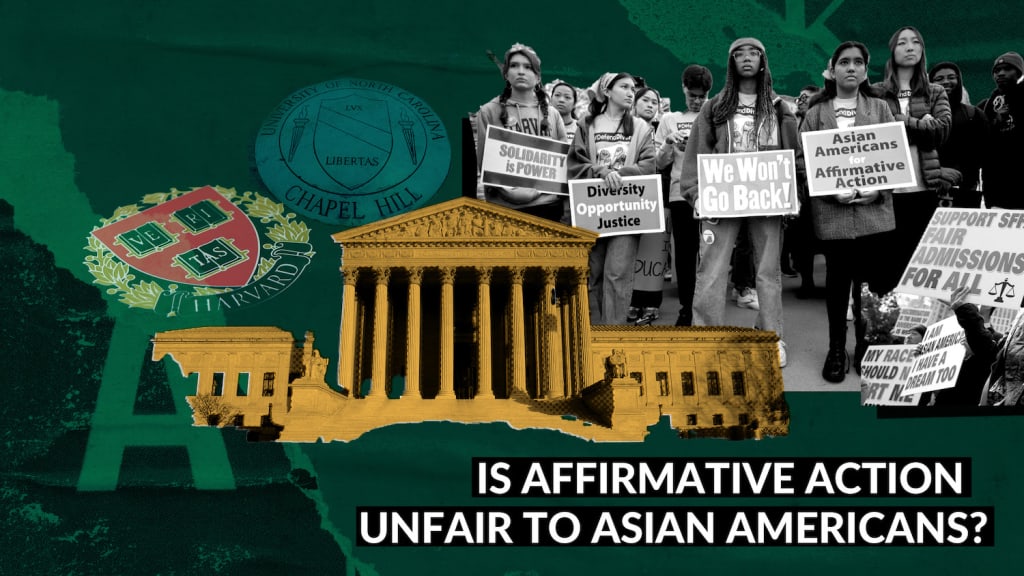Intelligence Squared U.S. Podcast Asks: Is Affirmative Action Unfair To Asian Americans
This is a real debate where both sides get to present their arguments. No yelling. No Insults. No alternative facts.

Affirmative action is one of those issues that nags at people, irrespective of their view on its efficacy. For some, affirmative action offends their sense of fairness and raises their emotional thermostat because someone’s cutting in line. For others, affirmative action is a remedy for a long-standing societal illness — discrimination against a group or multiple groups. Finally, other people view a college campus as a “Cobb salad,” where many different ingredients are tossed into one bowl and one delicious food item results. To them, a college campus of, say, only one kind of cheese is just wrong.
It should never be said that the people at the Intelligence Squared U.S.podcast have shied away from a debate on a contentious issue. In fact, they know that it’s these issues that make for the most lively and edifying debates.
For some listeners, the concept of a debate may be an alien concept. Why? Because most media outlets, such as Fox News, allow one point of view, making their channel a “safe space” for the “one true political viewpoint.” When a contrary voice is invited on the network, they are often yelled at and talked over until they give up or the network goes to a commercial when that guest begins to score some debate points.
In real debates, people don’t yell or scream or call each other names. For millions, it will be an alien concept.
But listening to a true debate is a cleansing process. It’s like your intellect gets a good deep scrubbing. Lies are washed away. Alternative facts are not allowed. Insults have no place. Suddenly, your entire belief system is hosed down and then rebooted back to its factory default.
With that preface, the new episode of nonpartisan debate podcast Intelligence Squared U.S. asks a provocative question: “Is Affirmative Action Unfair to Asian Americans?”
The Supreme Court is likely to issue a ruling related to this topic in the coming months, having recently heard arguments in the case Students for Fair Admissions, Inc. v. President and Fellows of Harvard College.
The justices are revisiting decades of precedent upheld over the years by narrow court majorities that included Republican-appointed justices. This time, however, it is likely that the conservative court will overrule some or all of those precedents.
According to NPR, "The baseline for permissible affirmative action programs in higher education was established in 1978. Citing Harvard University as the model, Justice Lewis Powell said that in evaluating applicants for admission, race could not be the determinative factor, but the university could use race as one of many factors, just as it uses other traits — special talents in music, science or athletics, and even the fact that the applicant's parents attended the university."
Ahead of that, Intelligence Squared presents arguments on both sides of the issue.
“Arguments on both sides of the issue.” A novel concept these days, but, oh, so refreshing.
Arguing for the motion is Lee Cheng, Co-founder of the Asian American Coalition for Education who also worked in the Harvard College admissions process as an alumni interviewer for nearly 25 years. Arguing against is John Yang, President of Asian Americans Advancing Justice who has worked with the White House and Senate in securing the nomination and confirmation of over 20 Asian American and Pacific Islander federal judges.
Listen to the podcast on Apple, Spotify, YouTube, or wherever you get podcasts. Find more info and debater bios at intelligencesquaredus.org.
About the Creator
Frank Racioppi
I am a South Jersey-based author who is a writer for the Ear Worthy publication, which appears on Vocal, Substack, Medium, Blogger, Tumblr, and social media. Ear Worthy offers daily podcast reviews, recommendations, and articles.






Comments
There are no comments for this story
Be the first to respond and start the conversation.